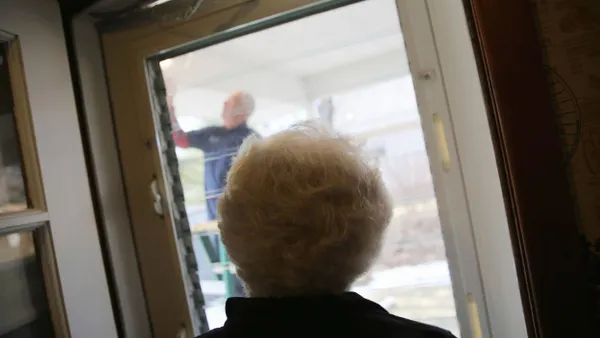Dive Brief:
- A bill introduced in Maui County, Hawaiʻi, would establish procedures to “compassionately relocate” people living in encampments, including prior notice of encampment clearings, assurances people who are relocated can remain with domestic partners and safe storage for their possessions.
- Outreach providers contracted with the county would be required to attend encampment removals, per the latest proposed amendments to Bill 111, which was introduced last year. If police are called to an encampment clearing, the county would be required to “make a reasonable effort” to ensure a female police officer is present if a woman or girl is present and that at least one responding officer is certified in crisis intervention team training.
- The bill received public support at a Sept. 4 Water Authority, Social Services and Parks Committee meeting, where it was ultimately tabled for further revisions and review. Councilmember Gabe Johnson, who wrote the bill, said he is “not giving up” on it.
Dive Insight:
Since last year’s Supreme Court ruling upholding anti-camping laws, federal, state and local authorities have been cracking down on homeless encampments around the country. California Gov. Gavin Newsom has advocated for banning encampments on state-owned rights of way. President Donald Trump signed an executive order in July in another push to enforce prohibitions on urban camping.
Hawaiʻi has taken a similar approach, enforcing numerous encampment clearings in the state, including 45 encampments in Diamond Head, a state park on Oʻahu.
Hawaiʻi’s homelessness rate is more than 3.5 times the national average, affecting 80.5 per 10,000 residents, according to a May report by the University of Hawaiʻi Economic Research Organization. Maui, devastated by 2023 wildfires, faces some of the state’s greatest housing challenges, according to the report.
Johnson said at the Sept. 4 committee meeting that the county’s current encampment removal processes are “causing harm and making things worse.”
Another recent study funded by the county found that the root cause of homelessness in the county is cost and availability of housing and income inequality.
“Punishing the houseless, alienating them and sweeping them like trash does nothing to address this root cause,” Johnson said. “This bill is to provide a process to relocate our houseless people in a dignified and respectful way.”
During the hearing, First Deputy Corporation Counsel Mimi DesJardins said the ordinance was likely to be challenged and advised its proponents to adopt more “flexibility,” including in the bill’s mandated storage of personal property.












